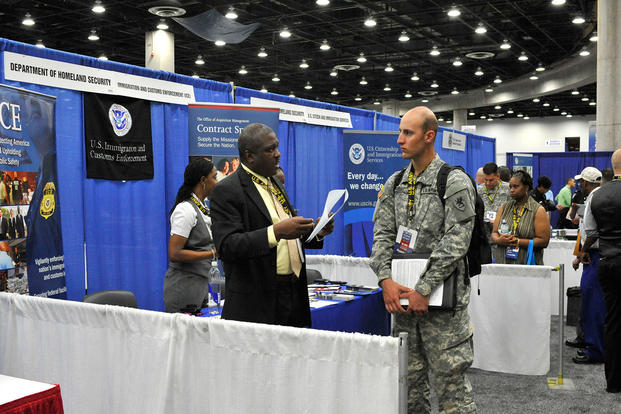When growing a workforce of exceptional and committed talent, sourcing and attracting workers are only half the battle: Retaining and growing them is often a bigger challenge than hiring.
Companies who hire military veterans often find that engaging, growing and retaining them in the company proves difficult for several reasons, including:
- Previous work experience often does not translate to the new job;
- There are communication differences, learned in the military culture, that hinder dialogue with civilian managers;
- The onboarding process should be modified to be unique to veterans;
- The lack of understanding of disabilities and the mental health impact of war (e.g., PTSD and traumatic brain injuries) and how they can impact private-sector careers.
Engaging with veteran employees doesn't stop with the hiring process. To retain and grow this workforce, employers should:
1. Recognize and Share Corporate Values
Veterans are very values-driven. The values of the armed forces are often the reason men and women join the military, sacrifice so much of their personal and professional lives to serve and commit to the mission of the job. When they transition, these veterans often seek employers who promote -- and live -- a set of clear and actionable values. Companies seeking to retain veteran talent are advised to discuss, display and promote their values as a company and a team.
2. Customize Onboarding and Career Development Paths
Slight moderation to new hire packets, onboarding training and career path development yields great results with military veterans. They are accustomed to change, stress, focus and diligence. What they are not versed in is corporate politics, managing the needs of internal customers (in the corporate setting), working in teams of competing goals, etc. To onboard a veteran using a career-sensitive map means articulating the "rules of the road" at your company to ensure they are successful.
3. Promote Peer Mentorships
Veterans are used to having a support network. During their time in the military, they are buddied up with someone who ensures they are given access to the training and tools they need to succeed. In the private sector, they still need (and value) a mentor. Whether that mentor is another veteran or a civilian isn't as important as having someone who is passionate about military transition, career success and compassion. This mentor will be an invaluable guide, support and information source to the veteran employee.
4. Show Appreciation for the Veteran's Service
Whether it's a simple "thank you" or a lavish event to recognize them, your military veteran employees appreciate sincere and appropriate gratitude. The key words are sincere and appropriate. You'd never want to make your veteran employees feel singled out against their will.
5. Understand the Needs of Military Families
Retaining veteran employees means recognizing the value of the military family. As I've written about often, the family is a huge support system for the active-duty service member, and when they transition to a civilian career, their family is there to help them reintegrate. Companies that include the spouse in key job negotiations, invites the family to gatherings and supports the spouse and family in essential conversations show the veteran employee that they recognize how important these individuals are in their transition to a healthy and vibrant civilian career.
The Department of Labor has prepared a helpful toolkit for employers seeking to hire and retain veteran talent. While hiring is important, retention is where true growth -- for the company and the individual -- occurs.
Find the Right Veteran Job
Whether you want to polish your resume, find veteran job fairs in your area or connect with employers looking to hire veterans, Military.com can help. Subscribe to Military.com to have job postings, guides and advice, and more delivered directly to your inbox.
















